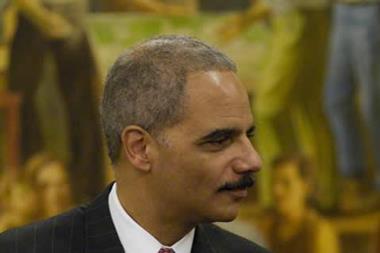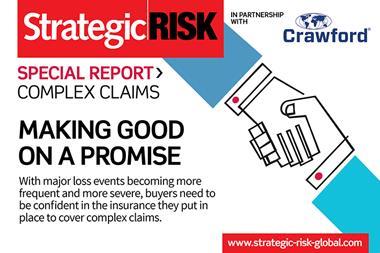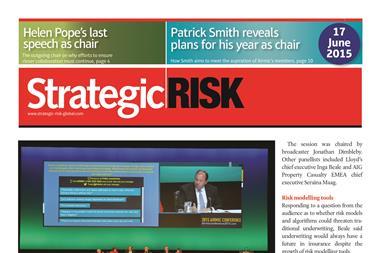Tony Dowding looks at how companies can prevent and deal with false and exaggerated claims
Fraudulent claims are a perennial problem, but common sense suggests that the problem can be exacerbated during a recession. Certainly, as people struggle financially, the temptation to make a fraudulent claim is increased.
The figures seem to back up this view. For example, although the true picture will not be known until the UK is out of recession, a clear trend has been revealed by the Association of British Insurers (ABI).
In a report published in July this year, entitled ‘Deception, Exaggeration, and Invention’, the ABI said that the cost of undetected fraudulent general insurance claims is now £1.9bn a year, up from £1.6bn two years ago. This amounts to £5.2m every day.
The report also revealed that insurers are detecting more of the fraud being committed. Last year, frauds worth £730m were detected and prevented – a 30% increase on 2007. In terms of
numbers of claims, household and motor were the most common. But commercial fraud, which saw an estimated 9,800 detected fraudulent claims, had a value of £240m.
There are other signs that the recession is leading to an increase in fraudulent claims. A number of surveys have shown that there is an increase in the number of people who would be prepared to commit fraud, either through false or exaggerated claims.
And companies within the insurance industry are all ramping up their fraud offerings, which suggests there is a need, and that fraud is occurring and causing problems for companies and their insurers.
Increase in fraudulent claims
Marc Spurling, claims defensibility senior consultant, forensic accounting and claims services, Marsh Risk Consulting, believes that there is anecdotal evidence of an increase in fraudulent claims. ‘I think there is a greater risk for exaggerated claims, in other words financial fraud. The impact of loss of income either through personal redundancy or through redundancy of a wife or partner is a potential driver for such claims.’
He explains that in the personal injury sector there is potential for more public liability claims, particularly for slips and trips, and awareness of the potential to claim is already enhanced through advertising by claims management organisations and solicitors.
‘The financial impact of the recession may create a potential for a squeeze on public funding. This introduces a risk that increased claims could filter into the public sector or that their exposure may increase, for example, if potholes or pavements are not repaired as frequently.’
He says that there is also potential for increased employer’s liability claims to be made when redundancies are announced: ‘I have recently had an experience of a client whose employee claimed sickness soon after an announcement of consultation to make him redundant.’
He adds, ‘This may affect all sectors, but is a particular risk in organisations with elements of occupational disease exposure in their processes. The risk for the employer is that such a claim may be made to add to the financial compensation given in redundancy.’ And finally, he says, there are also sophisticated motor frauds through staged accidents which may affect company car drivers.
“In the personal injury sector there is potential for more public liability claims, particularly for slips and trips
Paul Hopkin, technical director at AIRMIC, says he believes that the potential for fraud is certainly greater and arguably the motivation to commit fraud is greater in a recession. ‘Risk managers are acutely aware of the increased risk and it is higher on the agenda of risk managers than it has been for some time.’
Insufficiently alert
However, Neil Daniel, head of counter fraud and investigations service at GAB Robins, thinks that companies are not alert enough to the increasing risk. ‘The financial services industry is aware, but other sectors are not. If you look at the range of motives for committing fraud, you have greed, financial adversity, peer pressure, and so on. Where businesses are going into recession or facing financial problems, and have disgruntled employees, it fits like a glove. I don’t think risk managers are spotting this exposure enough.’
Fraud affects all companies, as Bobby Gracey, vice president, global counter fraud solutions, Crawford & Company, explains: ‘I don't believe any sector is immune from fraud and, ultimately, it will come down to survival of the fittest. In other words, the companies who have committed to develop specialist counter-fraud teams, external partnerships, or staff education programmes, and have institutionalised their fraud strategy will always come out on top.’
So how do companies get the right procedures in place to identify suspect claims, and prevent and deal with fraudulent claims? Gracey believes that it has to start with a business having a documented fraud strategy in place and having a top-down culture led from the boardroom. ‘It is also important to measure activities to do with countering fraud, as what you measure tends to get done. The strategy needs to be aligned to a fraud policy, which should be a policy of practice, not a policy of paper. A company also needs to understand where its fraud leakage could exist, and then build effective containment programmes around the risk exposure.’
Daniel says that there is no silver bullet to kill off fraud, but adds: ‘the key to unlocking fraud is communication. The insurance industry is taking great strides to share information, but they have to share information properly.’ He points to the Insurance Fraud Investigators Group (IFIG) as a good example of this. IFIG is an organisation dedicated to the detection and prevention of insurance fraud, with members including insurers, lawyers, loss adjusters, and investigation agencies.
Daniel describes IFIG as ‘possibly the best natural, organic database that you can search on’. He stresses that only members can search, and can exchange information within the confines of the UK Data Protection Act. But he adds: ‘This is only when you have evidence to suspect criminality – there are no fishing exercises.’
Data protection problems
And herein lies the problem for the risk manager. There may be data protection issues for a risk manager looking to use such a database. As Daniel points out: ‘A risk manager is looking to assess risk. He will, therefore, be fishing to see if he is at risk, and so therefore it will be difficult for a risk manager to take advantage of the database. IFIG is all about the prevention and detection of crime.’
Daniel believes that the key to dealing with fraud is collaboration and partnership. ‘There is a partnership approach when fraud happens,’ he explains. ‘The first thing we do, as investigators, is look at what the risk manager did when he was exposed to this position, because ultimately if they have been negligent, then an insurer is going to take a dim view of any claim that comes their way. So the first thing we look at is: “Were the risks assessed? Should they have been assessed? Is corporate governance an issue?” There is a huge amount of collaboration now, but to be honest there is even more room for collaboration in the industry.’
AIRMIC’s Hopkin agrees with the need for collaboration: ‘There is a great co-operative spirit in the insurance market to help clients to work to combat fraud, particularly in terms of compiling databases – and there are several databases out there that can show, for example, that this name, from this address, has a very large number of claims associated with it. Such means of flagging up possible fraudulent claims are becoming more valuable for risk managers and are increasingly being used by risk managers.’
Gracey says: ‘The use of analytical technology and databases is certainly helpful, but it by no means solves the issue of fraud. Many companies have made the mistake of thinking that technology provides the silver bullet to fraud. However, the most important tool you will always need is people and, in particular, specialist fraud investigators.’
Another vitally important tool in the fight against fraudulent claims, at least internally, is whistleblowing. And, as Daniel explains: ‘It has to be in everybody’s face; it has to be advertised throughout the company, so that all employees understand the whistleblowing policy. Companies must have a robust fraud policy which will help to highlight where the risks are, the exposure to fraud within their processes, so that they can be monitored. In terms of corporate governance, whistleblowing procedures are a must.’ n
Key elements for fighting fraud
Marc Spurling of Marsh Risk Consulting sums up the key defensive measures that companies can take:
• Make certain there are robust claims defensibility procedures in place.
• This is especially important when it comes to the reporting and investigation of incidents and accidents. Early notification of an accident allows an organisation to identify when an injury has occurred and how serious it is.
• Early investigation of an incident and the ability
to gather detailed information at this stage can help an organisation to understand what has
happened.
• If an organisation has good procedures for managing absence, including early occupational health intervention and rehabilitation schemes, this can go some way towards mitigating against exaggerated illness claims.
• Objective medical assessments of an employee’s fitness to do their job also assists in this area.
• Dedicated health surveillance and screening
programmes, combined with safe systems of working, reduce the potential for fraudulent
allegations of industrial illness.
• Good communication with insurers is important.
If a fraudulent or exaggerated claim is suspected, it is important to tell insurers immediately.
• Providing insurers with full, detailed, and robust information can help to identify potentially
fraudulent claims at an early stage.


















No comments yet